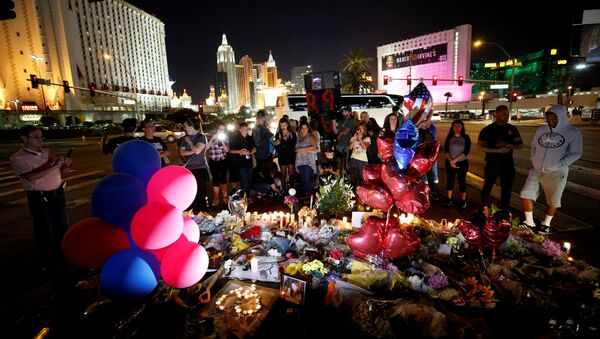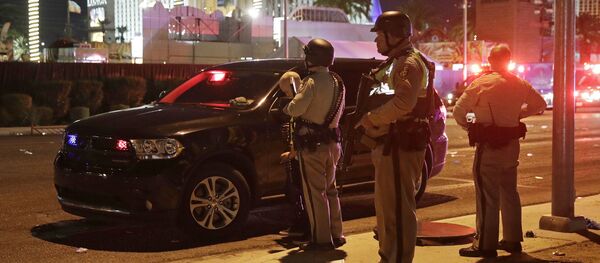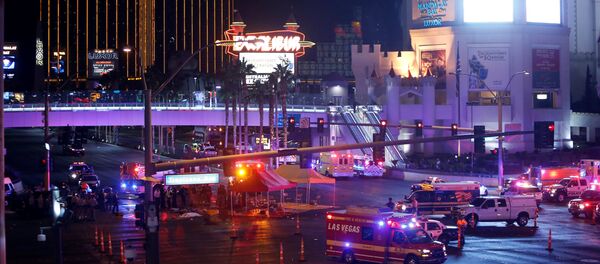A note found in the suite of a high-rise hotel Paddock stayed in featured handwritten calculations on how to maximize the accuracy of his fire to kill as many people as he possibly could.
"I could see on it he had written the distance, the elevation he was on, the drop of what his bullet was gonna be for the crowd," David Newton, one of the three police officers who stormed into Paddock’s hotel suite on the 32nd floor of the Mandalay Bay hotel overlooking the crowd gathered across the street, said in an interview on CBS News’ program “60 Minutes” that aired on Sunday.
The officers were the first to see the body of Stephen Paddock, who had taken his own life, and an arsenal of at least 23 semi-automatic rifles — 12 of which were equipped with bump-stocks, or rapid fire devices — found inside his hotel room.
David Newton described his first impressions of Paddock’s hotel room as they moved in amid the flashing lights of a fire alarm set off by an explosive, which had been used to blow through the door.
"Very eerie. Yeah, the dust from the explosive breach. And then you have the flashing lights," Newton said. "And that looked straight, like, out of a movie, you know?"
About an hour after firing ceased, he was found dead in his hotel room from a self-inflicted gunshot wound. His motive still remains unknown.
Daesh claimed responsibly for Sunday’s massacre, but investigators have found no known nexus to terror or connections to any terrorist organization.




